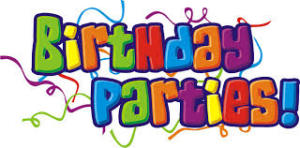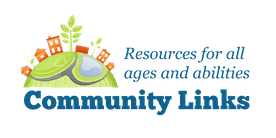If I were given the choice of what I find to be the most challenging for children with disabilities, I would say their ability to effectively communicate their wants and needs, additionally, interactiing with others. I am sure there are many caregivers, teachers, and professionals who would agree to this. In fact, if you take a look at the goals set forth for each of these children, whether it be a behavior plan or their individualized education plan (IEP), I’m sure you will find at least one goal on each that pertains to the child’s social  skills. What comes naturally to us, can be an extremely daunting, challenging, or even just simply unpreferred or uninteresting task for children with disabilities to do.
skills. What comes naturally to us, can be an extremely daunting, challenging, or even just simply unpreferred or uninteresting task for children with disabilities to do.
So how do we approach this? How do we help them socialize with others, or even just with their family members? For us, it is so simple to say, “Nah, I don’t want to”, “My head hurts”, or “I’m hungry”. This can be a very difficult task for those with special needs. This requires much work, time, and dedication to teaching the skills needed for them to communicate such things, whether it be verbally, nonverbally (sign language or picture cards), or with a communication device.
It has been widely known that the earlier you start teaching social skills, the better outcome young children will have in obtaining them. Where do you start? This all depends on your child’s developmental level and their capabilities. Sign language and picture cards are typically the easiest to start off. Some take pictures of their child’s natural environment (around home, school, favorite places in the community), and teach their child to show them the pictures for their wants and needs. A lot of consistent modeling on how to communicate with this approach will also help your child. Some families use play time as teaching moments, whereas some families also use supplement technology devices, such as iPad programs (there are a variety of free apps available for specials needs children for different skills) and DVDs while teaching their children social skills. All of this, in conjunction with the help of Speech and Language professionals, activities and resources, can all make a huge impact on a child’s early development.
 As this can be on going issue regarding social skills, to avoid this becoming another version of The Never Ending Story, I will put more focus on a very common social situation many families face with their children, which would be those good ol’ birthday parties, which are meant to be so much fun for the kids, right?? For the child with a disability, it can be one of the most stressful moments of their life! New people, a new or unfamiliar place, crowds, weird sounds, additionally, not fully understanding the ‘what’ or the ‘why’ behind what’s going on, and top of all of this, not having any predictability about how things are going to go (leading to more confusion), is more like their own personal Armageddon in the making.
As this can be on going issue regarding social skills, to avoid this becoming another version of The Never Ending Story, I will put more focus on a very common social situation many families face with their children, which would be those good ol’ birthday parties, which are meant to be so much fun for the kids, right?? For the child with a disability, it can be one of the most stressful moments of their life! New people, a new or unfamiliar place, crowds, weird sounds, additionally, not fully understanding the ‘what’ or the ‘why’ behind what’s going on, and top of all of this, not having any predictability about how things are going to go (leading to more confusion), is more like their own personal Armageddon in the making.
If your special needs child is the birthday boy/girl, prepare him/her in advance about the upcoming party. This can be done through the use of social stories, pictures, and even taking your child to the venue where the party will be held (if not at home). Consistent repetition about what will happen that day, in addition, mentioning who some of the guests will be, can help him/her understand better not only the purpose, but also how the day will go. You may even have to explain why we celebrate birthdays and what a ‘birthday’ actually is. Some families find that even rehearsing, or simulating how the party will go (including asking questions that your child may get asked by some of the guests) is helpful to prepare their child.
 How do you prepare for your child’s party? Mommies of Miracles has a very informative article about Party Planning for Kids with Special Needs which was written by a parent who has a child with a disability. This parent also gives more detailed information regarding ideas on several party themes and gives helpful rules for parents to follow.
How do you prepare for your child’s party? Mommies of Miracles has a very informative article about Party Planning for Kids with Special Needs which was written by a parent who has a child with a disability. This parent also gives more detailed information regarding ideas on several party themes and gives helpful rules for parents to follow.
Similarly, all of this preparation can be applied when going to another child’s birthday party. It might be helpful to contact the hosts of the birthday child’s party, to let them know about your child’s disability and special needs, and give them a better understanding of your child (and potentially avoid “the stares” or “too much attention” if your child has a behavior). You can also ask the host about what activities will be done at the party, so you can tell your child what to expect. Some hosts have even catered to special diets, if your child has a special diet, but you might want to play it safe and bring your child’s own food anyway. Sometimes, it’s not just the child that gets stressed about birthday parties and requires the preparation, but also the parents. The “fear” of others’ reactions, and simply seeing this reaction from them, is more like a reminder of some of the daily struggles families with special needs children face, and could make you feel as if you just don’t “fit in”. Many families avoid going to parties because of this, but you do not have to! Focusing on your child is your priority, and don’t be hesitant about being open to the other guests about your child’s disability. You may be surprised how understanding others really are.
.

